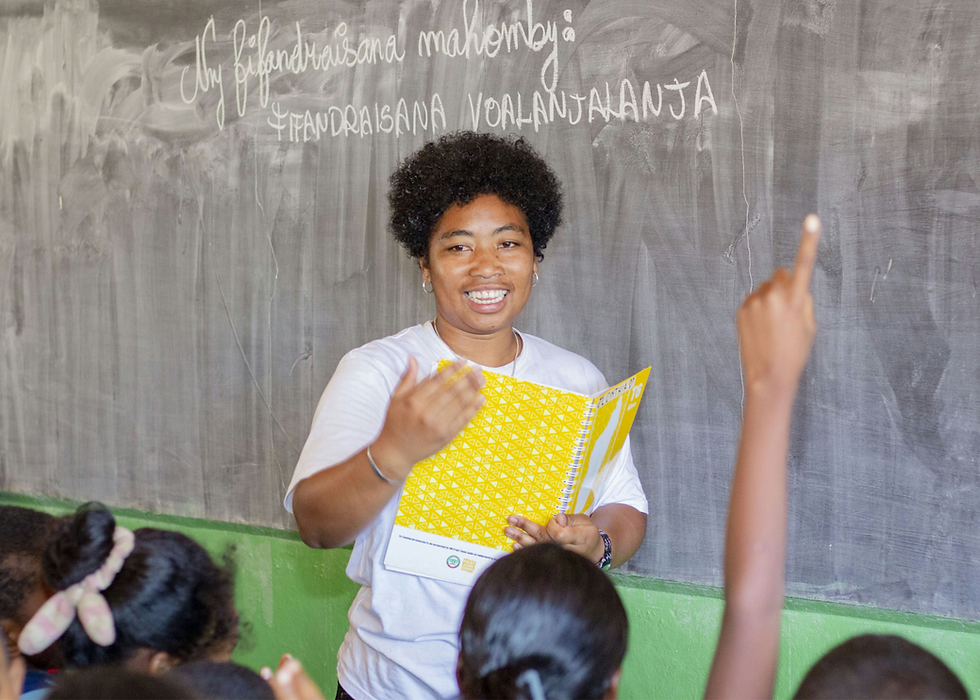A participatory theater training strengthens our pedagogy
- Projet Jeune Leader

- Jun 30, 2019
- 2 min read
Updated: Nov 18, 2021
Walk into one of our classes and you will hear animated discussions, thoughtful questions, and copious laughter.
We pride ourselves in the participatory nature of Projet Jeune Leader’s comprehensive sexuality classes, especially because we know that students learn best when they are actively engaged.
One of the most popular teaching tools amongst our educators are role plays and skits. Students love them - whether they are watching, or acting themselves - and this affinity translates into enhanced attention and information retention. We've also found that theater is a creative way to engage students with themes on gender and sexual health, topics which are sometimes sensitive by their nature.
But, as much as we understand the power of theater in the classroom, we have never had the opportunity to formally reinforce our educators’ capacity in this teaching tool.
To solve this, Renata Thakurdyal, a Peace Corps Volunteer who extended her service with Projet Jeune Leader, reached out to Zara Aina, a nonprofit that helps at-risk children in Madagascar. Zara Aina's mission is to "harness the transformative power of theatrical storytelling and performance to expand their capacity for achievement, invest in their sense of possibility, and recognize their potential."
In June 2019, under the guidance of the Zara Aina team, PJL staff and Educators practiced writing skits that better transmit key educational or social messages. They further learned how to actively involve audiences to identify solutions to a given scenario. As our Ambositra supervisor Vero Rasoamalala reflected after the training, “I now know how to motivate audience participation and better use skits to achieve a lesson’s objectives.”
The team also exhanged ideas for how to encourage more personal reflection amongst students on a skit's topic, empowering them to be the agents of change when dealing with a difficult situation.
“This training was fascinating because it will help improve how educators lead theater-based lessons. I think it could be incorporated in other trainings we do, like our trainings with parents and other community workshops,” Vero noted. We share her excitement about improving our pedagogical approach! Thank you, Zara Aina and Renata, for sharing your creativity, enthusiasm, and expertise!











